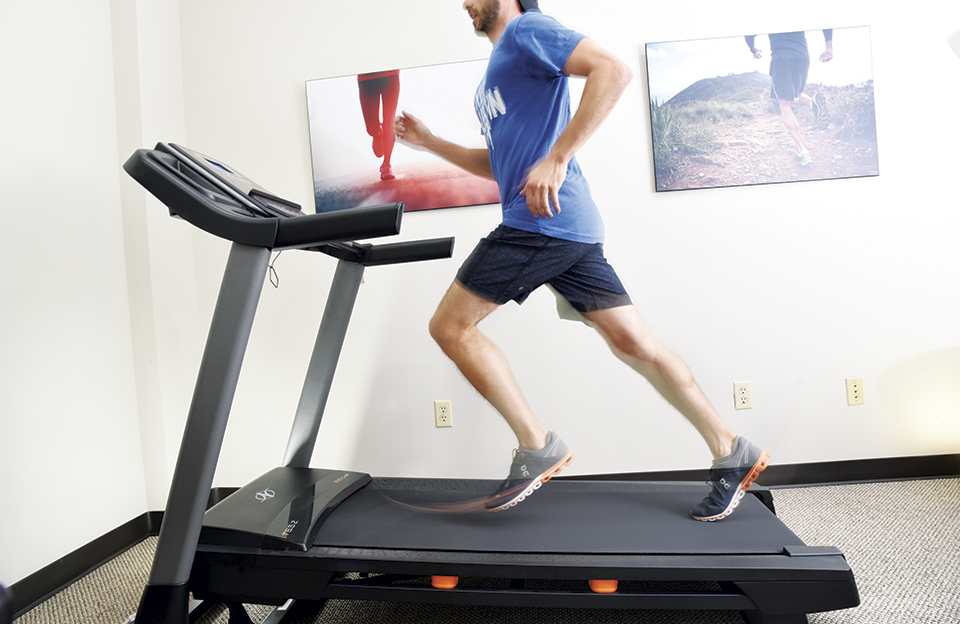How Solid is Your Foundation?

Our feet are the foundation on which we move through the world. But how do we know if that foundation is solid, level, and properly supporting the body above it? Some people are quite lucky and have a balanced, well-aligned, and properly mobile foot structure. Then there are those of us who aren’t so lucky. Our arches might collapse too far, remain too high, or a number of other abnormal movements may occur with each step we take.
If you are in the “not so lucky” group, the question then becomes, “How do you know if your foundation needs repairs, and if so, what’s the best thing to do about it?”
The Orthotics Debate
There is an ongoing debate about the necessity and use of custom foot orthotics. Many people are in the camp that we should all be walking barefoot or in minimalist shoes without providing any support to the feet. Although many have had great results with this approach, many others have ended up as patients with stress fractures and soft tissue injuries.
We hate to say it, but while the concepts in the book “Born to Run” have been a positive thing for many people with a certain body and foot-type, they have also generated a lot of business for physical therapy practices like ours.
The truth is that there is no single answer to the above question that applies to all people. Some people simply do not need additional support or changes to their feet, but plenty of others benefit tremendously from having customized corrections in the form of orthotics.
1. If you have foot, knee, hip, or low back pain and using orthotics only makes a tiny difference in symptoms, then no—this is not recommended.
2. Hip muscle weakness can allow the leg to move in a way that mimics the abnormal movements caused by foot issues. If the foot and ankle are not positioned and moving correctly, and the cause of these issues is not coming from the hip, then yes—consider orthotics.
3. If your skeletal structure exhibits tibial varum, which is an actual curvature in your lower leg bones, even good running or dress shoes won’t correct this specific issue. Shoes are not designed with your exact feet in mind and can only be “customized” specifically to your feet with the addition of a custom orthotic. In other words, if you’re bowlegged, yes—consider orthotics.*
*Aside from tibial varum, there are a variety of structural and movement abnormalities that can benefit from orthotic correction—most of which would be difficult to describe and even more difficult for a reader to self-diagnose.
Custom Vs. Over-the-Counter
We frequently get the question, “Why don’t I just get an over-the-counter (OTC) arch support?” This is a good question and just in case an OTC insert will be sufficient, we often have people try them out first. However, if they don’t get noticeable relief, we have them come back for the real deal.
Most of the time we find that OTC orthotics just don’t provide the support that is necessary for even force distribution through the foot. A simple way to test this is to do a single-leg-squat while standing barefoot on the OTC orthotic and then repeat the squat barefoot on the ground with no orthotic. If your balance and pain is the same on the OTC orthotic as it is with no support at all, you’ll likely be wasting your time and money sticking with the OTC option. We also have research evidence that suggests custom orthotics do a better job of reducing abnormal forces through the foot and leg than OTC arch supports.
The reality is that not everyone needs orthotics but for those who do, they can be incredible in terms of your ability walk, run, and enjoy life without painful limitations.
Getting custom orthotics can be compared to getting fitted for a custom suit. The tailor takes multiple measurements and you discuss how you want to feel and move in the suit. The process is detailed, customized exactly for your body, and the suit fits perfectly. What if you could have this same experience with your feet? If you are having any foot, knee, hip, or back pain, it may be well worth looking into.
See what the evaluation and casting process for custom orthotics looks like:







